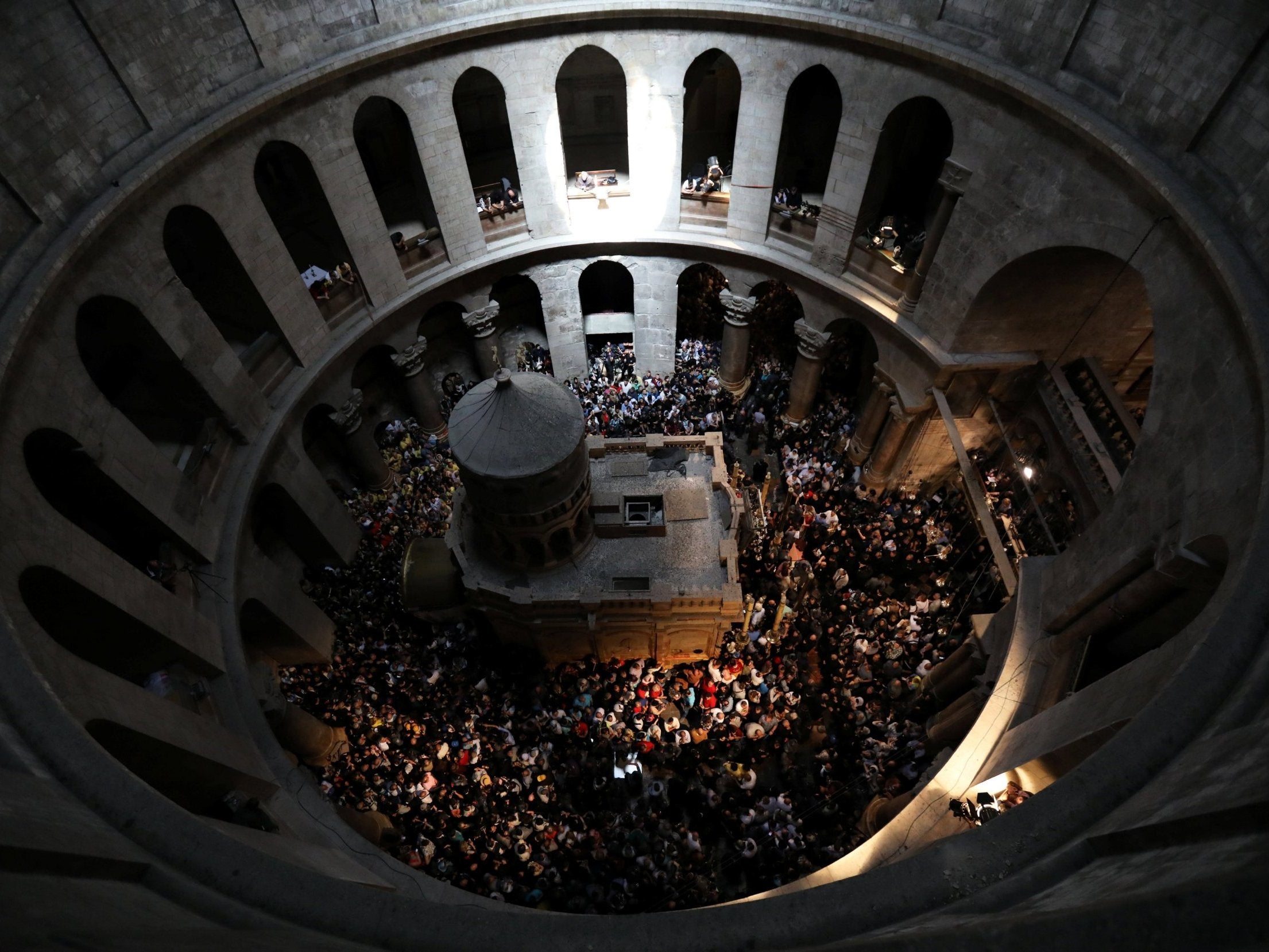Tensions run high over control of Jerusalem’s Holy Sepulchre
Muslim families have long held the door key because of the church’s shared custody

Your support helps us to tell the story
From reproductive rights to climate change to Big Tech, The Independent is on the ground when the story is developing. Whether it's investigating the financials of Elon Musk's pro-Trump PAC or producing our latest documentary, 'The A Word', which shines a light on the American women fighting for reproductive rights, we know how important it is to parse out the facts from the messaging.
At such a critical moment in US history, we need reporters on the ground. Your donation allows us to keep sending journalists to speak to both sides of the story.
The Independent is trusted by Americans across the entire political spectrum. And unlike many other quality news outlets, we choose not to lock Americans out of our reporting and analysis with paywalls. We believe quality journalism should be available to everyone, paid for by those who can afford it.
Your support makes all the difference.It is 3am and Artak Tadevosyan is wafting incense through the corridors of Jerusalem’s Church of the Holy Sepulchre, the site where Christians believe Jesus Christ was crucified and buried.
“Walking in the Lord’s footsteps, really, you have feelings that cannot be explained,” says the 26-year-old Armenian Orthodox cleric. “We don’t see it as stone, all these are holy places for us.”
The Holy Sepulchre lies in Jerusalem’s Old City. A church was first built there in the fourth century under Constantine the Great, the Roman emperor who converted to Christianity.
Today the Greek Orthodox, Armenian Orthodox and Roman Catholic churches share custody of the building, and tensions sometimes run high over who controls what.
Other denominations also hold services there, in languages including Latin, Arabic, Aramaic, Amharic and Ge’ez.
At night the building falls silent. Muslim families have long held the door key, because of the tensions between the Christian clergy.
In the Greek Orthodox patriarchate nearby, His Beatitude Theophilos III, the patriarch of Jerusalem, says he feels deep reverence for the church.
“For the Christian world the Holy Sepulchre is the heart of Jerusalem and the world,” he says during preparations for the Orthodox Christmas.
“Why? Because this particular place, which is the rock of the crucifixion and the rock of the tomb, or the burial site of Jesus Christ, has been watered, and therefore blessed, by the blood of the righteous one.”
Reporting by Stephen Farrell, Reuters
Join our commenting forum
Join thought-provoking conversations, follow other Independent readers and see their replies
Comments